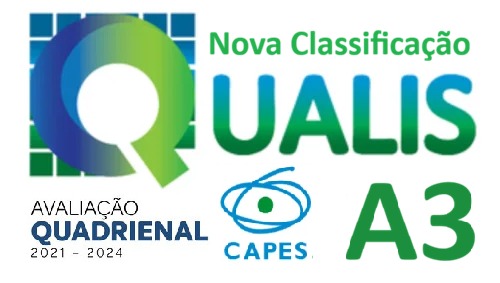Calibration of the LDI/CDTN Whole Body Counter us-ing two physical phantoms
DOI:
https://doi.org/10.15392/bjrs.v5i3.252Keywords:
Internal Dosimetry, Whole Body Counter, BOMAB, Radioprotection.Abstract
The Laboratory of Internal Dosimetry of the Center for Development of Nuclear Technology (LDI/CDTN) is responsible for routine monitoring of internal contamination of the Individuals Occupationally Exposed (IOEs) at the Unit for Research and Production of Radiopharmaceuticals (UPPR/CDTN), the Research Reactor TRIGA-IPR-R1/CDTN and other workplaces of the institute where there is a risk of accidental intakes. Additionally, LDI supports the Institute of Radiation Protection and Dosimetry (IRD/CNEN) to attend radiological emergencies. The determination of photon emitting radionuclides in the human body requires the use of calibration techniques in different counting geometries for converting the count rates into activity in organs and tissues. This paper presents and discusses the calibration of the LDI/CDTN Whole Body Counter (WBC) using a standard BOMAB phantom (Bottle Mannequin Absorber) compared to a home-made phantom produced with Polyethylene Terephthalate bottles (PET). Initially, the BOMAB was filled with a cocktail containing 60Co, 137Cs and 133Ba. The phantom was counted at the LDI whole body counter and an Efficiency x Energy curve was obtained. Subsequently the PET-BOMAB was filled with the same standard source and a second curve was determined. The efficiency values in each region of interest as well as the shape of both curves were found to be equivalent. The results validate the use of the PET-BOMAB for the calibration of whole body geometry applied to the measurement of high energy radionuclides in the energy region evaluated in this work.
Downloads
References
ANSI, American National Standards Institute, 1999. Specifications for the Bottle Manikin Absorption Phantom, ANSI N13.35, NewYork.
CANBERRA. Genie2000 Gamma Acquisition & Analysis, Version 3.1. Canberra Industries Inc., 2006.
DANTAS, B. M. et al. Accreditation and training on internal dosimetry in a laboratory network in Brazil: an increasing demand. Radiation Protection Dosimetry. Rio de Janeiro, v. 144, n. 1-4, p. 124-129, 2011.
FONSECA, T. C. F.; BOGAERTS, R.; HUNT, J.; VANHAVERE, F. A. Methodology to develop computational phantoms with adjustable posture for WBC calibration. Phys. Med. Biol. v. 59(22), p. 6811-6825, 2014a.
FONSECA, T. C. F. et al. MaMP and FeMP: computational mesh phantoms applied for studying the variation of WBC efficiency using a NaI(Tl) detector. Journal of Radiological Protection, v. 34, n. 3, p. 529, 2014b.
INTERNATIONAL ATOMIC ENERGY AGENCY, Direct Methods for Measuring Radionuclides in the Human Body, Safety Series No. 114, IAEA, Vienna (1996).
IAEA, International Atomic Energy Agency, 2014. Radiation Protection and Safety of Radiation Sources: International Basic Safety Standards. Part 3 No. GSR.
ICRP, International Commission on Radiological Protection, 1991. ICRP Publication 60: 1990 Recommendations of the International Commission on Radiological Protection (No.60). Elsevier Health Sciences.
KRAMER, G. H. The Canadian whole body counting intercomparison program: a summary report for 1989-1993. Health physics, v. 69, n. 4, p. 560-565, 1995.
PAIVA, F.G. et al. Improvement of the WBC calibration of the Internal Dosimetry Laboratory of the CDTN/CNEN using the physical phantom BOMAB and MCNPX code. Applied Radiation and Isotopes, 2015.
SANTOS, L.R.D. Monitoração in vivo-análise de incertezas. Doctoral dissertation, Universidade de São Paulo, 2012.
Downloads
Published
Issue
Section
License
Licensing: The BJRS articles are licensed under a Creative Commons Attribution 4.0 International License, which permits use, sharing, adaptation, distribution and reproduction in any medium or format, as long as you give appropriate credit to the original author(s) and the source, provide a link to the Creative Commons license, and indicate if changes were made. The images or other third party material in this article are included in the article’s Creative Commons license, unless indicated otherwise in a credit line to the material. If material is not included in the article’s Creative Commons license and your intended use is not permitted by statutory regulation or exceeds the permitted use, you will need to obtain permission directly from the copyright holder. To view a copy of this license, visit http://creativecommons.org/licenses/by/4.0/



























